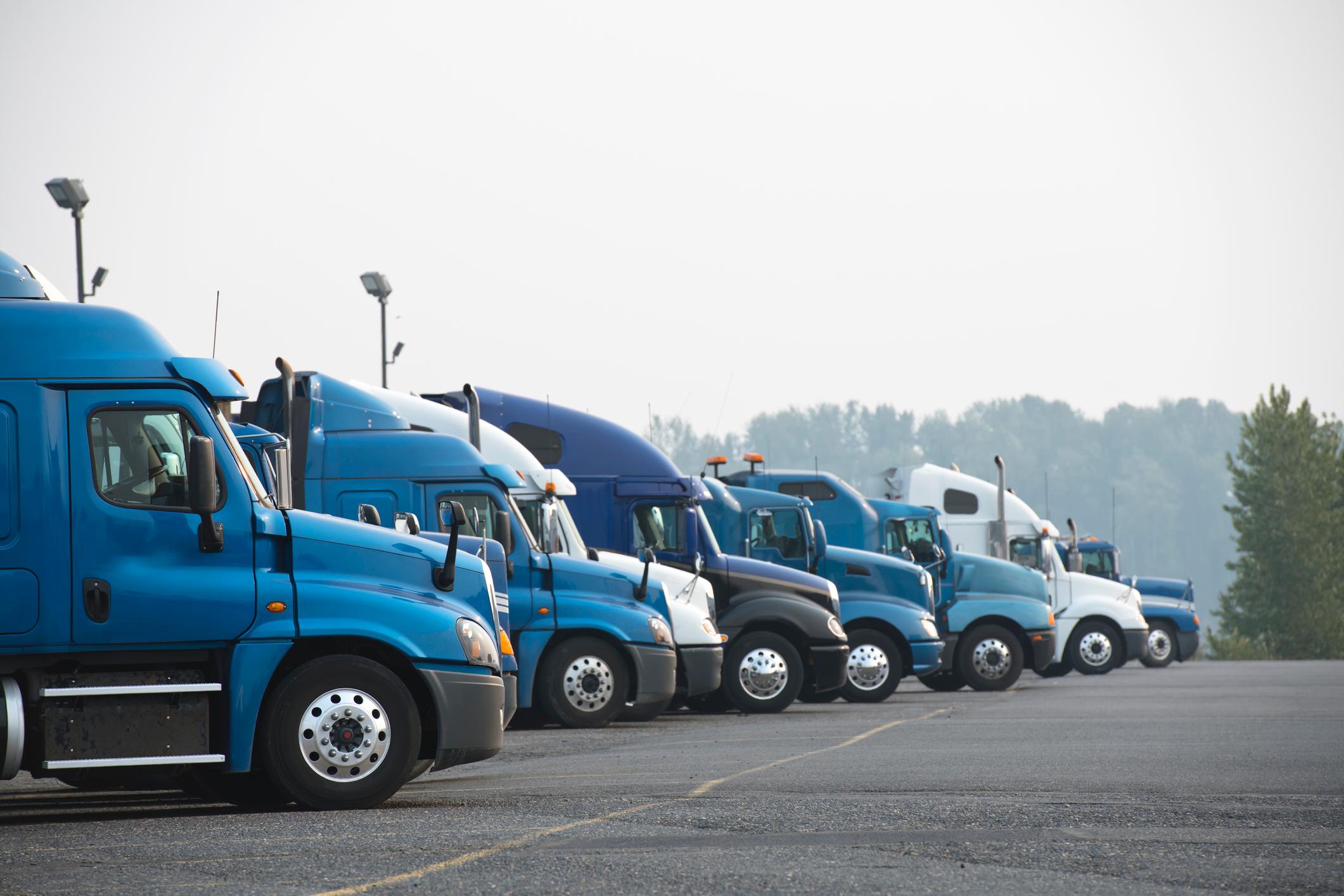MENU
Starting a Business
- Best Small Business Loans
- Best Business Internet Service
- Best Online Payroll Service
- Best Business Phone Systems
Our Top Picks
- OnPay Payroll Review
- ADP Payroll Review
- Ooma Office Review
- RingCentral Review
Our In-Depth Reviews
Finance
- Best Accounting Software
- Best Merchant Services Providers
- Best Credit Card Processors
- Best Mobile Credit Card Processors
Our Top Picks
- Clover Review
- Merchant One Review
- QuickBooks Online Review
- Xero Accounting Review
Our In-Depth Reviews
- Accounting
- Finances
- Financial Solutions
- Funding
Explore More
Human Resources
- Best Human Resources Outsourcing Services
- Best Time and Attendance Software
- Best PEO Services
- Best Business Employee Retirement Plans
Our Top Picks
- Bambee Review
- Rippling HR Software Review
- TriNet Review
- Gusto Payroll Review
Our In-Depth Reviews
- Employees
- HR Solutions
- Hiring
- Managing
Explore More
Marketing and Sales
- Best Text Message Marketing Services
- Best CRM Software
- Best Email Marketing Services
- Best Website Builders
Our Top Picks
- Textedly Review
- Salesforce Review
- EZ Texting Review
- Textline Review
Our In-Depth Reviews
Technology
- Best GPS Fleet Management Software
- Best POS Systems
- Best Employee Monitoring Software
- Best Document Management Software
Our Top Picks
- Verizon Connect Fleet GPS Review
- Zoom Review
- Samsara Review
- Zoho CRM Review
Our In-Depth Reviews
Business Basics
- 4 Simple Steps to Valuing Your Small Business
- How to Write a Business Growth Plan
- 12 Business Skills You Need to Master
- How to Start a One-Person Business
Our Top Picks
9 Benefits of Making the Switch to Cloud-Based POS Software

Table of Contents
Whether you’re new to the idea or have been considering it for months, switching from traditional sales technology to highly intuitive point-of-sale (POS) software is one of the smartest moves a small business can make. Learn what exactly cloud-based POS software is, take a look at some of the reasons your competitors have adapted it and see our picks for the top systems.
What is cloud-based POS software?
When you compare POS software, there may not seem to be significant differences between cloud-based systems and traditional platforms, but that couldn’t be further from the truth. Cloud-based POS systems store all of your sales data remotely on third-party servers, whereas conventional systems store all of your data internally on-site. This affects how accessible your critical sales information is.
Cloud-based POS software is similar to saving and storing a digital file to your iCloud or Google Drive account. You can access your documents from any device as long as you’re logged in to the account linked to the cloud’s server. However, a traditional POS system functions similarly to saving a digital file on a specific device, such as a Word document on your computer; you can access your Word document only on your computer unless you save a copy of the file to another device.
Learn more about what a POS system is and how to choose POS software specifically.
What are the benefits of cloud-hosted POS systems?
Cloud-hosted POS systems offer a number of benefits you won’t get with traditional POS software.
Accuracy
Many small businesses struggle with unrecorded sales and inaccurate inventory. Your staff ends up spending more time trying to reconcile these mistakes than helping customers and closing new sales, which inhibits business growth and profit. A cloud-based POS system can fix this. Traditional cash registers rely too much on human input. Especially at busy times, mistakes are bound to happen. POS systems take the guesswork out of making sales and allow your company to achieve an otherwise unattainable level of accuracy. Furthermore, because the data is hosted in the cloud, it will be accurate and up to date no matter which device you’re using to enter and view it.
Insights
A high-quality POS system does more than scan items quickly. It also gives your business the data it needs to grow and maximize profits. All purchases are tracked and recorded, which means any customer’s past purchases are available for viewing, including those made both in person and online. Businesses can track their successful products and services and create targeted marketing based on demographics, individual customer buying habits and more. When discussing these insights with stakeholders, meetings can be held anywhere since all the data is accessible remotely with cloud-hosted POS systems.
Aside from insights on your customers’ purchasing patterns, one of the top features of a POS system is a built-in customer relationship management (CRM) system. The CRM system can help you create specific, targeted promotions and rewards programs based on your customers’ buying trends.
Remote control
Cloud-based POS systems can be controlled on your mobile device and through the cloud. You don’t have to be present in your store to know what’s happening when you have a good cloud-hosted POS system in place. If you’re looking to scale your business to multiple locations or are concerned about how one site is performing when you aren’t physically there, a solid POS system with cloud hosting and a comprehensive reporting feature can do some of your work for you. Some of the most helpful tasks a cloud-based POS system can perform are handling employee management, generating store sale comparison reports and conducting product inventory analysis, allowing you to manage multiple locations from afar.
Consistency
Due to human error and other factors, a product may end up costing more at one store location than another. POS systems eliminate this problem, thus guaranteeing improved customer care and a company reputation for integrity. Maintaining consistent pricing is a professional function, and a POS system is the best way to achieve it. With cloud-hosted POS systems, you can check whether pricing is consistent across stores without needing to travel to other locations.
Ease of managing promotions
Promotions are essential to many small businesses for both attracting and retaining customers. However, organizations often struggle to keep track of the terms, duration and specifications, especially when it comes to short-term promotions. Many businesses even have multiple promotions occurring at the same time. Failure to keep track of promotions leads to lost sales and lost patrons because customer service suffers.
POS systems allow small businesses to track the promotions and profits of any offer with ease. If you have good POS software, you can determine which kinds of promotions make a profit and provide the best customer care accordingly. Plus, with a POS system hosted in the cloud, you can easily compare the success of promotions by store regardless of your physical location. [Related article: 7 Principles of Delightful Customer Service]
Inventory
Managing inventory without a POS system can be a nightmare. Especially for companies with both an online and physical store, consistency in inventory is incredibly important. But many businesses cannot keep track of their inventory or sort it in a useful way. Quality POS software allows for accurate, efficient inventorying. Depending on the product, you can sort your merchandise by type, class, item description and more. When visiting vendors or suppliers, you can even pull up your inventory data on your preferred device – thanks to cloud-hosting, it’s all at your fingertips instead of tied to specific hardware. Learn more about how POS systems improve inventory management.
Trends
POS software empowers you to identify trends in your business’s sales. For example, you can find out which demographic groups are interested in particular products. These trends can be tracked by any characteristic of the product. Taking this benefit further with a cloud-based POS system, imagine meeting with potential investors. You can wow them by pulling up this key information right on the spot, thanks to all the data being hosted in the cloud instead of limited to a terminal in your store.
Speed
Small businesses, in particular, suffer from slow checkout lines. Customers don’t enjoy having to wait in line while a cashier types in the description of what the person ahead of them is buying. With a sound POS system, cashiers can ring up customers quickly. They also have quicker access to product information, enabling them to help customers more efficiently. With a cloud-hosted POS system, all of that information is backed up to the cloud, so losing valuable data is no longer a concern.
One package, many tools
Business and marketing technologies are advancing rapidly. Keeping up with the competition often means buying the newest technological advancement in a particular area, but this can get expensive. Buying a POS system cuts costs because it provides many essential business tools in a single package. It also saves time because you don’t have to shop around for the best service in each particular area. One high-quality POS system can perform all the functions you need. Even better, cloud-based POS software can be updated much more easily than traditional POS systems.
The cost of cloud-based POS systems typically includes software maintenance and updates in your monthly service charge.
What are the top cloud-hosted POS systems?
The best cloud-hosted POS system for your business depends on various factors, like your industry, budget, and desired functions. Here are some of our recommendations.
Toast
Toast is a restaurant-focused, cloud-based POS system that offers three all-in-one solutions and three digital ordering plans. One of Toast’s most remarkable features is its tiered plan options, which give each restaurant the flexibility to choose the best ordering and delivery features, like contactless delivery, curbside pickup, and the iOS- and Android-compatible Toast TakeOut app. Toast also offers integration with popular food delivery services such as Uber Eats, Postmates and DoorDash. While Toast is cloud-based, it also can function offline, so you can keep working even if you lose your internet connection.
Learn more in our full Toast POS review if you run a restaurant that needs a POS or delivery solution.
Lavu
Lavu is a cloud-based mobile POS system that also caters to and offers customizable system options for restaurants of any size. With its comprehensive integration offerings – both in-house and almost 30 third-party apps, with another 60 third-party integrations in the works – and online shop, restaurant owners can choose the hardware and customize their POS setup for their specific needs. While it is cloud-based, Lavu offers an offline function as well. Lavu’s plans also come with free software updates, 24/7 customer support (via email, chat and phone) and access to an online resource database so you can troubleshoot problems on your own.
Learn how to choose a mobile POS system if you need to take your sales on the go.
Revel Systems
Revel Systems is a cloud-based POS system geared toward quick-service businesses, such as coffee shops, small retail shops and fast-casual restaurants. While Revel does require customers to buy at least two terminals, all of its POS hardware is preconfigured, so it’s ready for immediate use. In addition, it’s compatible with some third-party processors and has several POS capabilities. What sets Revel apart from other POS systems is its ability to create a customer loyalty program for your business. With its cloud-based software, you can capture customer information from your POS and design a loyalty or rewards program according to customer purchasing trends. The system also allows integrations with many companies to pull data for payment processing, CRM, gift card usage, online and mobile ordering, and more.
Check out our reviews of the best POS systems for more details on these and other POS systems.
Drew Hendricks contributed to the writing and research in this article.












